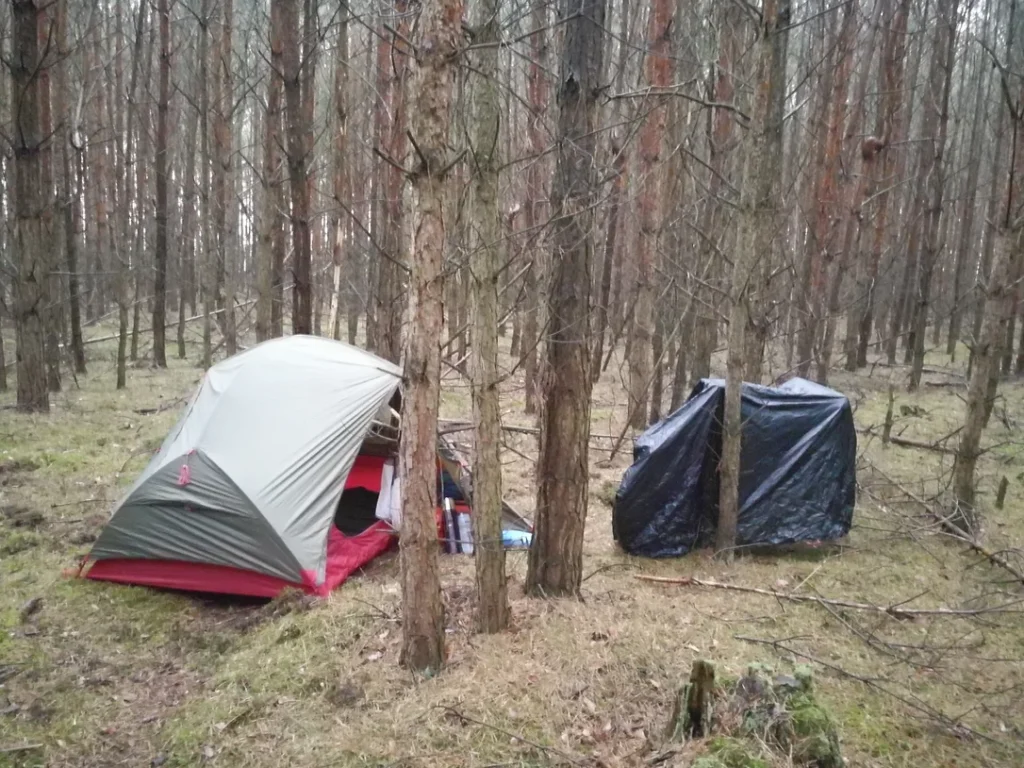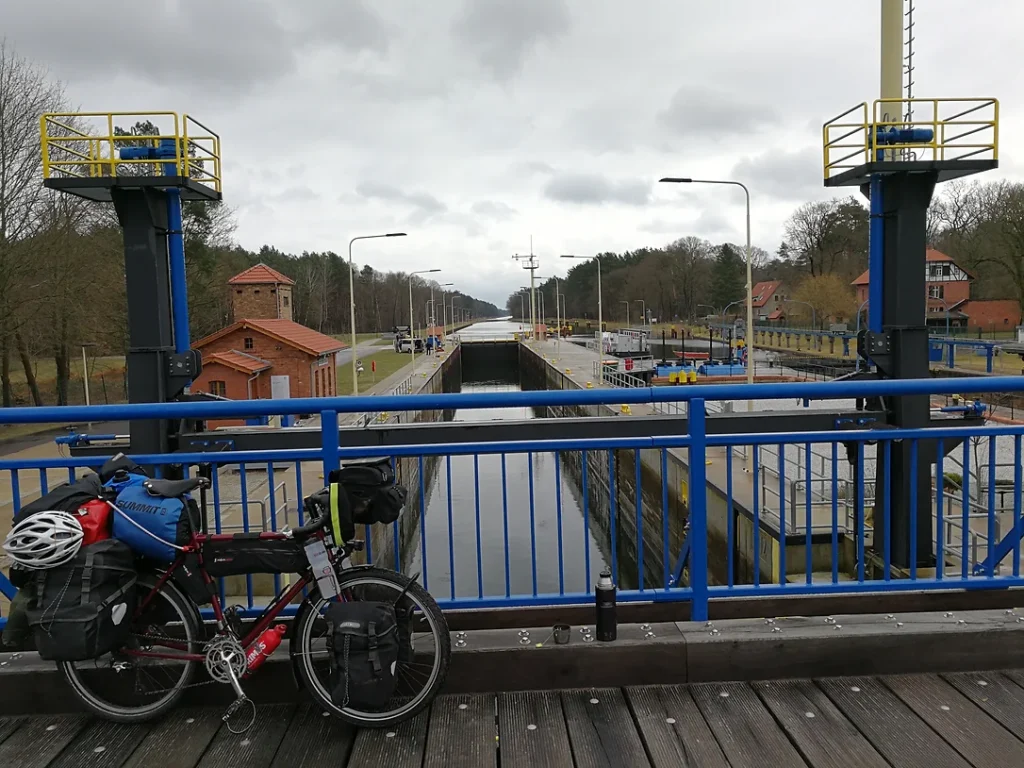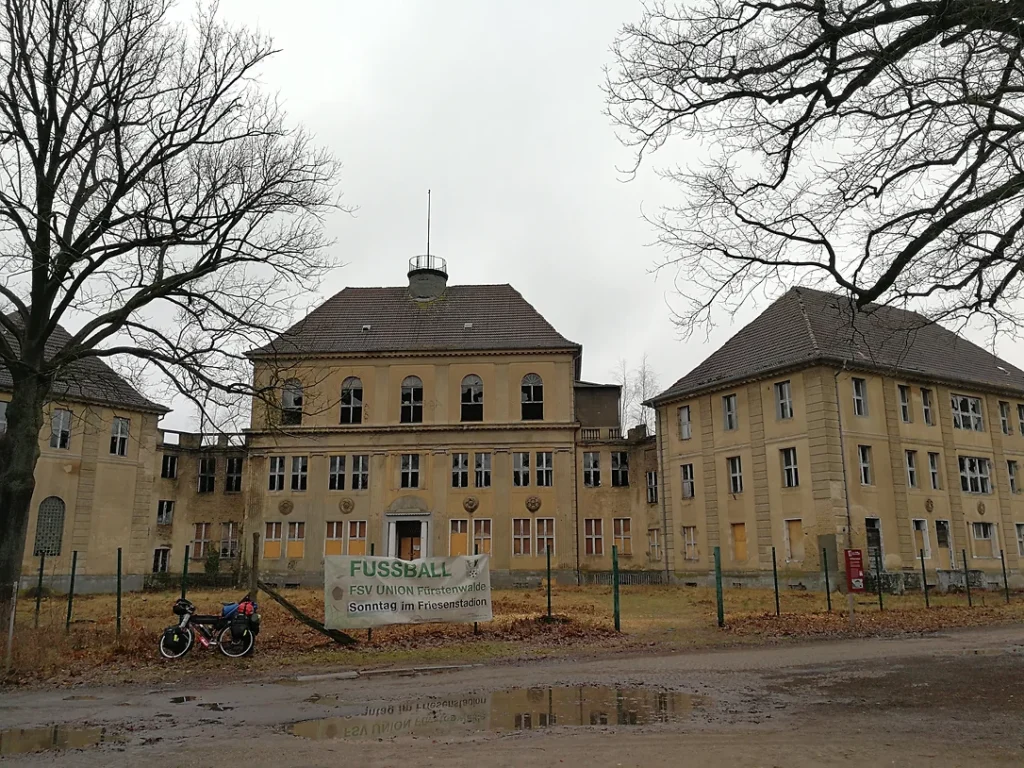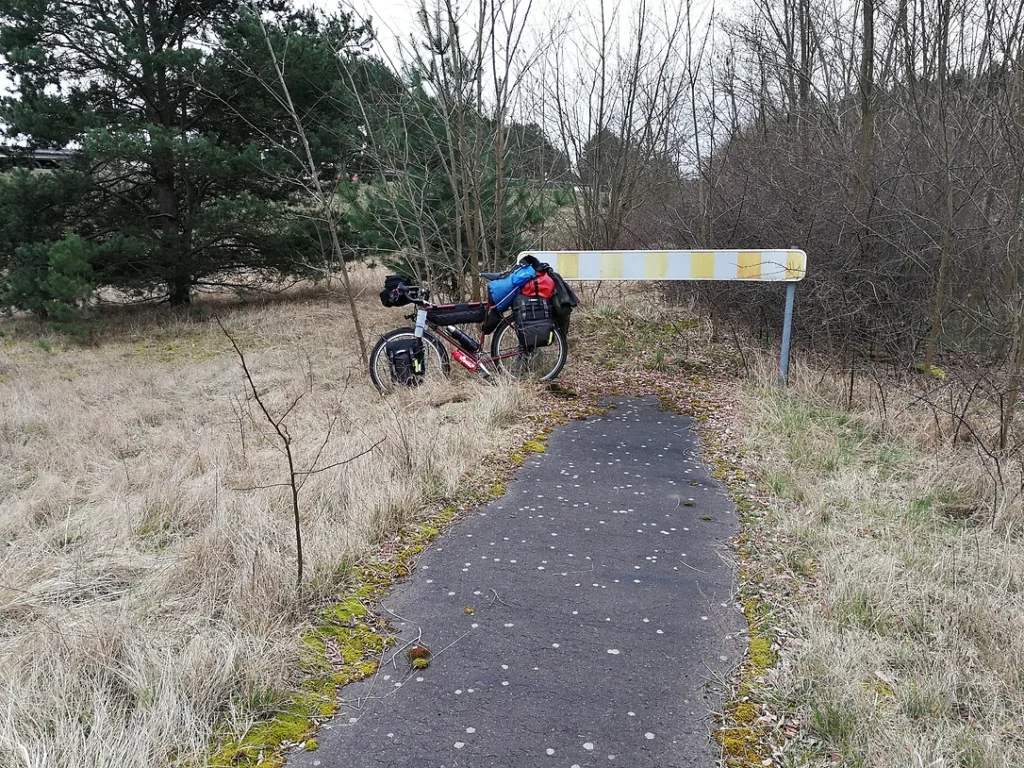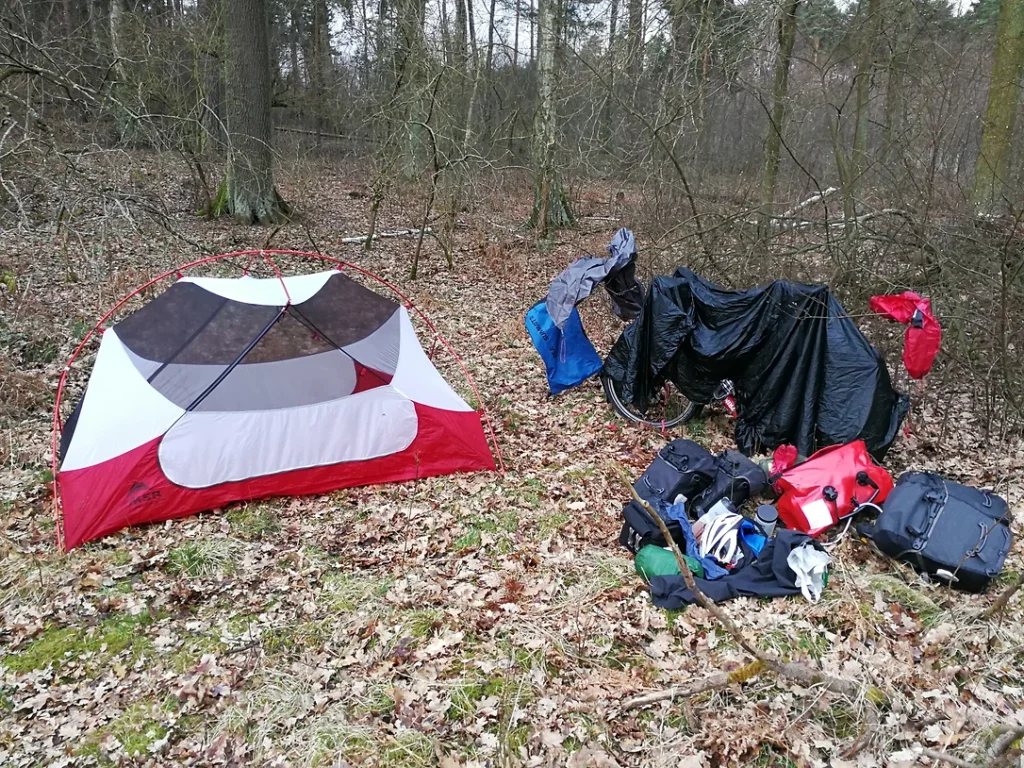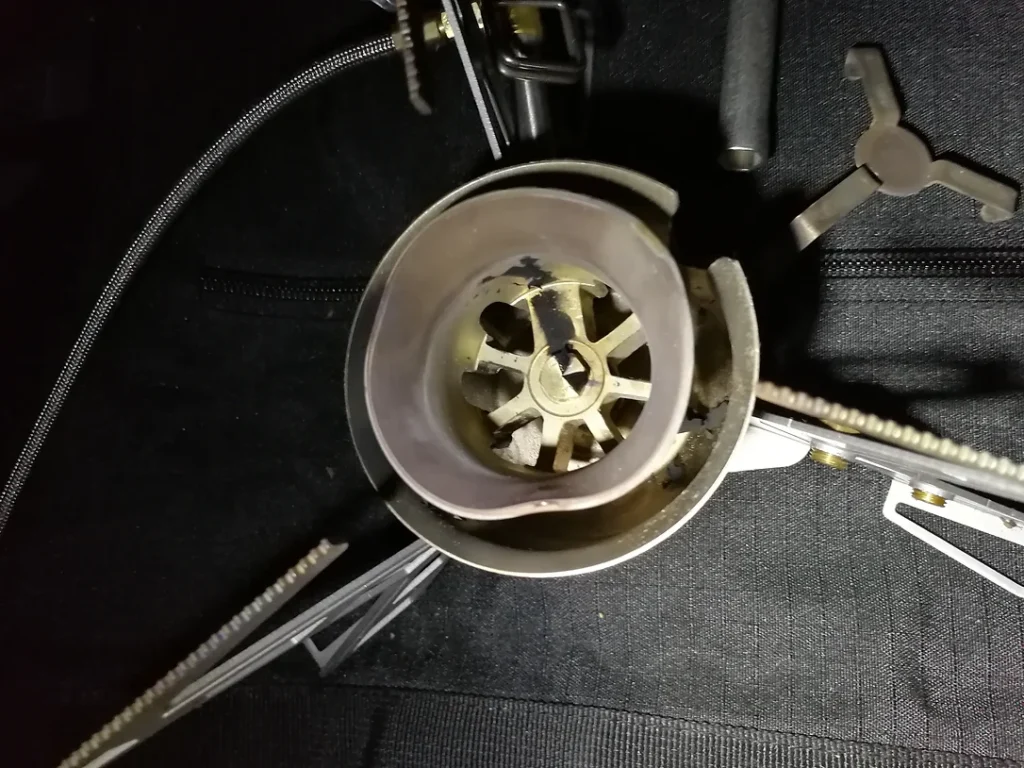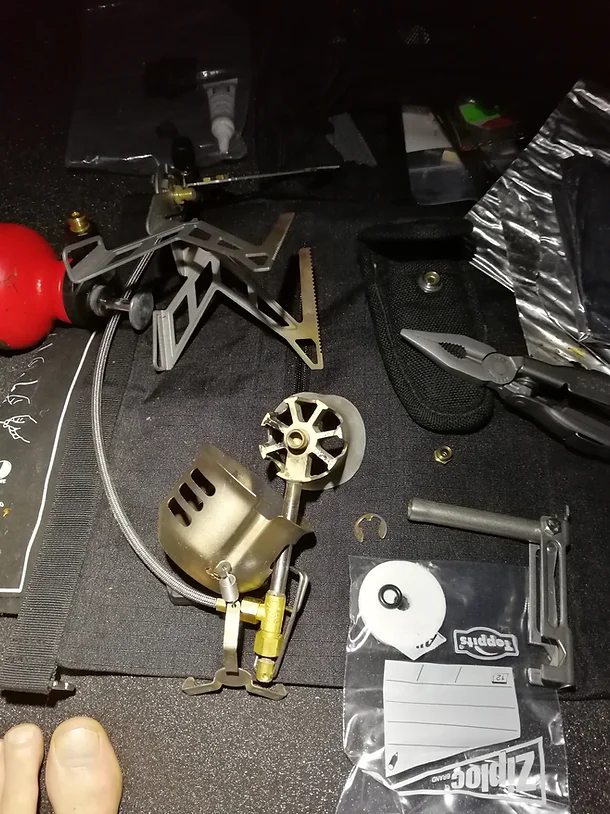Germany — Language
My friends gathered on a Sunday morning, gave me final hugs, and I started cycling east.
I soon crossed from West to East Berlin. Today the line of the former Berlin Wall is hardly noticeable but until 1989 this was different. In total more than 600 people died at the inner German border, most of them trying to flee the East German regime.
Some had accidents trying to cross the border by gas balloon or with self-made diving equipment at canal sections. Others drowned in the Baltic sea or died while digging tunnels. Many were shot by East German border guards who had an explicit shoot-to-kill order: “do not hesitate to use firearms, even if the border breaches are carried out with women and children”.
This was all not long ago – during my lifetime, over 17 humans died at the border line I just cycled over.
Would you risk your life to live your life according to your values?
Many people have cycled along the Silk Road before me which is not really risky. Still, their courage to venture into the unknown inspired me whenever I read about their adventure stories. I can honestly say that I had some fears to quit my professor job and apartment and comfortable Berlin life for an open-end cycling trip to Asia. Was that decision naive?
I wondered how the consciousness of other touring cyclists before me had changed during their time on the road. But can we ever understand someone else’s consciousness? Can we even know our own consciousness?
These of course are questions humans have always asked themselves as you and me are doing today, dear reader. I am a consciousness writing these words, you are a consciousness reading these words, and a process of consciousness self-reflection is somehow build into our joint human DNA. I guess you are thinking about your consciousness too in your life, one way or another.
From an evolutionary perspective, human consciousness self-reflection became possible when our biological brain became sufficiently developed. This must have happened somewhere between the beginning of life on earth and today where our average human adult brain weighs roughly 1.4 kg. However, for the human consciousness to actually reflect on itself, our biological potential to do so needed to be matched with an appropriate cultural setting for this to happen.
The Greek, for example, started to think deeply about human consciousness 2,500 years ago. They build the Temple of Apollo in Delphi which is said to have had the following maxim written on it’s entrance: “Know Thyself” – an ongoing lifetime task for all of us having a consciousness.
This ancient Greek advice leaves much room for interpretation. Of course we could directly dive into concepts our cognition typically associates with self-knowledge, such as “our values” or “our identity” or “our risk appetite”. However, before starting such discussions let’s take a step back and meditate for a moment on the raw nature and severe limitation of words.
What are “words”?
Words are nothing more than placeholders. They are functionally powerful as they enable us to acquire knowledge, understand causal relationships, and share our perspective with others – but still words remain only abstract and arbitrary placeholders for the real things which exist in our reality.
For example, humans have an extremity we call “hand”. In reality a hand is made of bones, flesh and skin. When we cut our real hand, warm blood flows out of our body whereas we cannot cut the linguistic placeholder consisting of the four letters “h-a-n-d”.
At some point in human history we agreed that our real hand made of flesh shall be represented by the abstract placeholder “hand”. However, this decision was arbitrary and comparing different languages makes the limited nature of words clear. The English word “hand” is “mano” in Spanish, in Slovakian “ruka”, and in Hungarian “kéz”. In each language system there has been an implicit agreement that the respective placeholder word shall represent the real hand made of flesh. We could invent arbitrary new placeholder words or in fact arbitrary new language systems – it wouldn’t change our reality much (except for the minor aspect that our used language systems also form part of our reality).
The limitation of words being only placeholders for real things is independent of our involved senses. For example, whether we hear a spoken word or read a written word, the audio/visual sensory input reaching our ears/eyes is equally fed into our brain which in both cases then pulls up the learned meaning with the same underlying brain process: “Ah, I just heard/read the placeholder word x which we humans agreed to represent the real thing y“.
What is “language”?
Many reality-placeholder words together form overall reality-placeholder mapping systems called language – we all learned one in our childhood. And our cognition is used to “think in language” automatically and lightning fast. However, this doesn’t change the fact that all words remain only placeholders for “real” things.
With language we can therefore only approximate our reality which is far larger and deeper than we can ever describe with words. Take one of your fingers and stick it in your mouth for some seconds. Your real fingertip gets warm whereas the abstract word “fingertip” can’t get warm.
Neither my consciousness writing these words nor your consciousness reading this words can change the limitation of language – but we can be aware of it to different degrees. And when you and I venture out following the ancient Greek advice “Know Thyself“, we can do this in two different ways.
First, we can stay close to words when thinking about our consciousness and reality. We can stay in the cognitive realm of abstract placeholders and articulate ideas on our self and our reality without questioning the raw nature of words deeper.
Second, we can try to overcome words and let our consciousness expand beyond language towards something like a more direct and unfiltered reality-perception.
Personally, I believe every human is doing both all the time. We all are philosophers in the sense that we “think in language” about our life and consciousness and reality. But we all are also beings with the ability to let go of narrow cognitive concepts articulated in words – in my view, we all possess something like a natural ability to somehow feel more deeply and intuitively into ourselves and into our surrounding world.
Which weight should we give to words in our consciousness?
It probably depends on the topic we think about. While our word-based cognition comes with the general restriction of merely being an assortment of reality-placeholders no matter what we think about, the severe limitation of words becomes more relevant when we go for the big questions in life (e.g. our life’s meaning) versus conceptually easy topics (e.g. our hand). This is perhaps most extreme when we focus our consciousness attention on our own consciousness, for example when we try to understand the individual ethical values we all have inside us.
The philosopher Ludwig Wittgenstein argued:
“My whole tendency and I believe the tendency of all men who ever tried to write or talk Ethics or Religion was to run against the boundaries of language. This running against the walls of our cage is perfectly, absolutely hopeless. Ethics so far as it springs from the desire to say something about the ultimate meaning of life, the absolute good, the absolute valuable, can be no science.”
Absolutely hopeless? Wittgenstein sounds pessimistic. While things may be fuzzy to describe at our “boundary of language”, I believe we humans benefit enormously from trying and I think this is particularly true regarding our own consciousness.
I’m just a cyclist but I guess understanding better who we are (e.g. regarding our ethical values) generally helps to live our life more aligned with our true self – matching our values with our actions, being authentic, things like that.
Language is also a communication tool to exchange ideas and “to write or talk Ethics” may actually be a good way to learn from each other – of course conversations on ethics are different from conversations on more mechanistic (science) topics like the rules of gravity.
In my subjective reality perception, self-exploration of our consciousness is what we all do lifelong whether we explicitly reflect on it or not. And in my eyes the constant self-exploration and evolvement inside our consciousness is the greatest journey we make in our life – a fascinating and deep ride we all share.
With these thoughts on language and consciousness in mind, I left Berlin’s urban area in the afternoon cycling east without an exact route planned. I had so far just decided to always cycle through nature instead of settlements if given a choice.
In the evening I pitched camp near Spreenhagen about 40 km east of Berlin. While filtering water from the Oder-Spree-Canal for dinner I thought about the Berlin Wall and the Cold War. It’s amazing to me that “West” and “East” Germany have peacefully reunited at a time when the world powers had stocked up more than 50.000 nuclear warheads – definitely cool.
Somehow I feel confident that as humanity we can again overcome our differences, see the greater good, and heal and grow together. And for this I believe a little bit of consciousness self-reflection helps … for world leaders, just like for you and me living in Germany, India, New Zealand, or the Sahel region.
In Spreenhagen Marienetta Jirkowsky grew up who was shot by East German border guards when trying to escape to West Berlin. With 18 years she was the youngest woman killed at the Berlin Wall. It touched me that I was already born when Marienetta was shot and I felt a deep sympathy and admiration for her and her courage.
I climbed into my sleeping bag and while listening to the forest I felt grateful for living in a time allowing me to freely cycle across countries which were formerly divided. It’s worth a lot.
Would you risk your life to live your life according to your values?
The nature in Germany’s state of Brandenburg is a beauty with massive forests and plenty of waterways. Today I saw more deer than cars on many stretches. The countryside is sparsely populated and the non-forest landscape is dominated by unused grasslands and swamps.
In the morning I tried cycling on a small forest path. When carrying my bike the third time over a fallen tree it dawned on me what locals confirmed later: there had been a storm yesterday, of which I had just gotten some rain last night.
More fallen trees along the rivers cut by plenty of beavers. Amazing how much impact such a small animal can have on the landscape and ecosystem. Humans have flourished here too but nature seems to be gaining ground back in towns like Fürstenwalde.
In the afternoon I cycled past a massive steel factory and a powerplant at Eisenhüttenstadt. Even though I prefer nature this stretch was worth the industrial scenery. However, the cycle paths in this area were partly weird.
I thought about the explorer-scientist Alexander von Humboldt. In 1829 he also started an expedition from Berlin which brought him to the border of China. How did his conscious develop through his experiences in foreign countries? Apparently Humboldt believed in the unity of the human species and in universal freedom instead of race-based colonialism.
Traveling in the outer and the inner world is similar. Whether we travel physically or mentally, we seem to learn through experiences and make choices based on our previous path.
And to me it seems that our life journey based on learning through experiences is structurally the same for all humans – it’s just the details of our individual lives which differ. My consciousness writing this, your consciousness reading this, the consciousness of Socrates and Wittgenstein and Alexander von Humboldt – we all evolve naturally over our lifetime.
This consciousness evolvement somehow happens automatically given that we all exist in a continuous stream of reality input – whether we reflect on this process consciously or not.
But is it at all necessary or beneficial to reflect on our human life journey and consciousness development?
I don’t think so, at least not as a generalization. On the contrary, I believe an overly intellectual articulation of ideas around our consciousness cannot be a prerequisite for something like a “happy” and “fulfilled” life.
Thinking with many complicated words may actually create obstacles. Indigenous people, for example, may never study “ethics” or “neuroscience” or practice a formal meditation path – and may exactly therefore live happy and fulfilled lives (e.g. living in balance with nature, listening to their bodies and feelings).
Looking at human history as a whole, all humans lived like Indigenous people until a couple of thousand years ago and I can’t see an evolutionary a cultural reason why since then a complicated cognitive self-reflection should have become a prerequisite for something we would call a good life – do you?
I am convinced that running too excessively against the “boundaries of language” can be damaging for us. For example, an overly intellectual perspective on our consciousness may leave us with many word-based mental maps but emotionally dulled and detached from the truth inside ourselves … the stuff we need to feel to really know who we are.
I guess we all benefit from finding our sweet spot balancing word-based thinking with direct feeling – too much language-based consciousness activity can be an energy-drain.
Personally, after years working at universities, I had realized that I was overthinking things (occupational risk …) which was another factor for me to go cycling. I wanted to feel rain in my face. I wanted to have dirt under my nails. I wanted to taste the flavor of life rather than only thinking about abstract ethical concepts.
And then I also simply had this longing for adventure in my chest … seeing the world, that kind of feeling.
Near Eisenhüttenstadt I hit a longer stretch of the river Oder without a bridge into Poland thus I rerouted and cycled south. I could have reached Poland today but decided against pushing it and opportunistically pitched camp at a dry hidden place I spotted still in Germany.
At dinner time I noticed that my burner’s priming pad was almost missing. It’s purpose is to support heating up the burner so that the gasoline evaporates and the flame burns heated gas.
I checked and found a sharply defined line of dirt on the burner’s nozzle. This was perhaps the result of a particle in the burner fuel which had caused an asymmetric flame burning the priming pad. Who knew, perhaps I messed up the burner otherwise given my inexperience?
What can we really know for sure?
I felt that I didn’t know that much and that the few things I believed to “know” were often highly uncertain, be it in the space of ethics, consciousness, or burner priming pads.
Not knowing is of course of great value. It’s an indicator of trusting ourselves. Whenever we decide to venture into a “not knowing zone” we create an experience in our consciousness that we trust ourselves enough to handle the new situation despite our fears – and this experience changes us.
Perhaps an appreciation of “not knowing” was required for human consciousness exploration? Perhaps this was even key to somehow live deeper? I didn’t know.
In the weeks before my departure I had decided to take a single book on the bike tour (The Tibetan Book of the Dead). But the day before my departure I changed my mind and left it behind realizing that reading more about becoming empty would exactly not have been helpful to really becoming empty.
Germany, “land of poets and thinkers” – tomorrow we will leave you behind for a really long time. Given the limitations of words and language, it may be a good idea anyways to keep some distance from poets and thinkers on our consciousness expedition.
